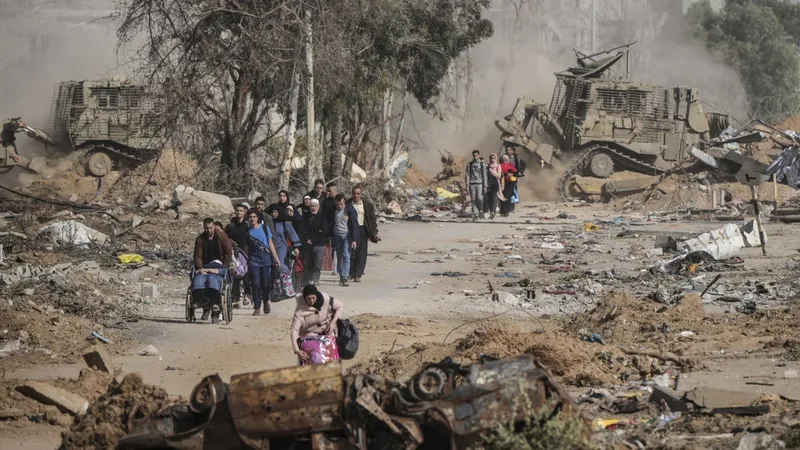THE HAGUE—In a packed chamber at the International Court of Justice, the air crackled with tension this April as lawyers and diplomats squared off over Israel’s blockade of humanitarian aid to Gaza. The case, brought by South Africa and backed by several nations, accuses Israel of deliberately choking off vital supplies—food, water, medicine—to Gaza’s 2.3 million people, exacerbating a humanitarian catastrophe. Israel, defiant, insists its actions are lawful, aimed at crippling Hamas, not starving civilians. The arguments, unfolding over days, laid bare a brutal impasse, with lives hanging in the balance.
South Africa’s legal team came out swinging on April 15, arguing the blockade violates international humanitarian law. They pointed to Gaza’s crumbling infrastructure—hospitals without power, kids scrounging for scraps in rubble. Official UN reports, waved like grim evidence, showed 80% of Gazans now rely on aid to survive, with malnutrition rates spiking among children. One lawyer, voice steady but sharp, described “a man-made famine” unfolding as trucks loaded with rice and bandages sit stalled at border crossings. The room grew quiet when she cited a UN estimate: 500,000 people in Gaza face starvation-level hunger.
Israel’s defense, led by a seasoned diplomat, pushed back hard on April 16. The blockade, they argued, is a legitimate military tactic to stop Hamas from siphoning aid for its war chest. They claimed Israel has allowed thousands of trucks into Gaza since the conflict flared—over 20,000 since October 2023, according to government tallies. But they didn’t shy away from the hard line: no aid will flow freely until Hamas releases hostages and halts rocket fire. One Israeli lawyer, gesturing firmly, said Egypt shares blame for bottlenecks at the Rafah crossing, a point that drew murmurs from the gallery.
The court, a stately maze of wood paneling and high ceilings, felt like a pressure cooker. Judges scribbled notes as both sides traded barbs over legal minutiae—Article 54 of the Geneva Conventions, the principle of proportionality. South Africa leaned on a January 2024 ICJ ruling that ordered Israel to ease aid restrictions, saying the blockade flouts that mandate. Israel countered that the court lacks jurisdiction over its security policies, a claim that sparked a flurry of objections.
Outside, Gaza’s reality loomed large. UN agencies reported on April 14 that 34 aid trucks—loaded with blankets, flour, vaccines—were stuck at checkpoints, some for weeks. European officials, in a rare public jab, called the delays “unacceptable,” noting food rotting in the sun. In Gaza, hospitals ration diesel for generators, and families boil weeds for soup. The blockade, tightened after Hamas’s October 2023 attack, has slashed aid to a trickle, with only 10% of pre-conflict supplies getting through, per UN data.
The hearings wrapped on April 18, but the judges’ ruling won’t come for months. South Africa wants an emergency order to force Israel to open aid routes. Israel, unmoved, says it’s fighting a war, not a courtroom. Meanwhile, Gaza waits—hungry, battered, and caught in the crossfire of geopolitics.

